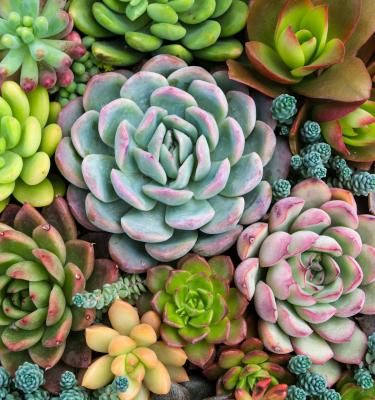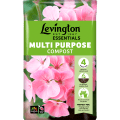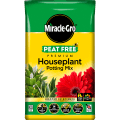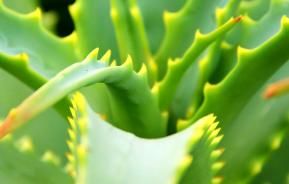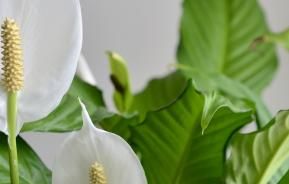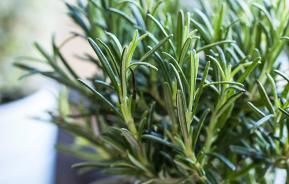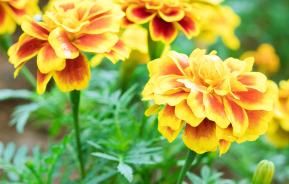Plants are good for us. They make our homes and gardens look beautiful, they give us a sense of purpose and they can bring nature into urban environments. However, did you know that some studies have shown that plants can be beneficial for both physical and mental health? From the humble Dandelion to the popular Aloe Vera, we’ll delve into what these potential benefits are and our top tips for making the most of them.
Aloe vera
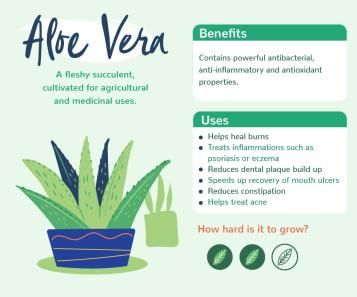
This fleshy succulent is a popular choice of house plant due to being relatively low maintenance. However, Aloe Vera has been used for thousands of years as a natural remedy. Originating from the Arabian Peninsula, it is said to contain powerful antioxidant, antibacterial and anti-inflammatory properties. Aloe Vera has many benefits, it can be used to heal burns, treat psoriasis or eczema, reduce constipation, reduce plaque build-up, speed up recovery of mouth ulcers, and treat acne.
How to use aloe vera?
To use Aloe Vera on the skin, snap off a stalk and rub the liquid on the affected area. Make sure to speak to your doctor first, in case you have any allergies.
How to care for aloe vera?
Aloe Vera thrives in indirect sunlight, and the soil should be left to dry just slightly (1-2cm) before deeply watering. If the plant is turning brown, it’s a sign of either too many chemicals in the air (from cleaning, for example) or too much sunlight. See our full guide on Aloe Vera plant care.
Peace lily
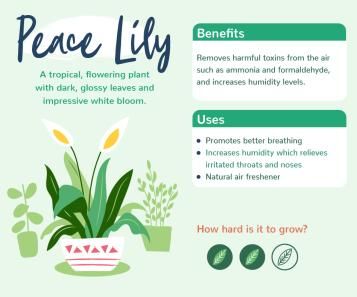
This glossy tropical plant makes an Instagrammable addition to your living room and is another low-maintenance house plant. The name of the plant derives from its relation to the Cala Lily, and the resemblance of the bloom to a white flag of surrender. The main potential benefit of having a Peace Lily in your home is that they are said to remove harmful toxins from the air, whilst also increasing humidity levels. This in turn promotes better breathing, relieving irritated throats and noses as a natural air freshener.
How to use a peace lily?
Place in a dry environment to increase humidity, or alternatively anywhere in the home! Note that Peace lilies do produce some pollen and a floral scent, which means that they aren’t always suitable for people with allergies such as hay fever.
How to care for a peace lilies?
Peace Lilies prefer a shady environment and should be kept slightly moist, but never overwatered. See our guide for more information on how to care for Peace Lilies.
Snake plant

This striking plant is native to tropical West Africa, and goes by a cheeky other name: mother-in-law’s tongue! Studies have shown that this plant emits oxygen whilst you sleep. The Snake Plant also removes harmful formaldehyde, trichloroethylene and benzene from the air, improving your breathing for a better night’s rest.
How to use a snake plant?
Place the Snake Plant in your bedroom, or in every room in your home!
How to care for a snake plants?
Snake plants are easy to care for – place in indirect sunlight and allow to dry out before watering infrequently.
Dandelion
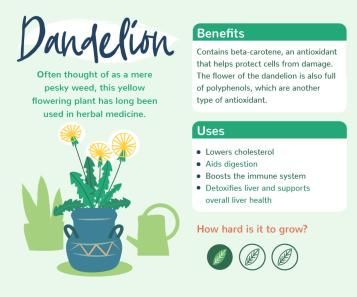
We often think of a Dandelion as a pesky weed blighting our lawn. However, it is considered by botanists to be a herb, and for many years, people have been using it for medicinal reasons. It’s said to contain beta-carotene, an antioxidant which prevents cells from damage. Potential benefits stemming from Dandelions include: lowering cholesterol, boosting the immune system, helping digestion and detoxifying the liver.
How to use dandelion?
You can brew the roots as a tea or use the leaves as a salad garnish. In Asian cooking, the leaves are used as lettuce – boiled, fried or made into a soup. Just make sure to thoroughly wash before you eat! Dandelions are one of a handful of edible weeds.
How to care for dandelions?
Dandelions grow abundantly in many parks, gardens and fields. As a typical ‘weed’, it requires no care.
Rosemary

This woody herb is well-known for the use in cooking, providing a fresh flavour. Native to the Mediterranean, it can also be used to make perfumes. Rosemary is said to have many other potential health benefits, as a rich source of antioxidants and anti-inflammatory compounds. It is thought to assist with boosting the immune system and improve blood circulation. As a result, studies say that Rosemary can improve your concentration and enhance your memory.
How to use rosemary?
You can use Rosemary sprigs to infuse olive oil, make lemonade, or make Rosemary salt.
How to care for rosemary?
It can be easy to grow Rosemary, but it will need special attention. The plant likes a lot of light, and you should avoid watering until the plant is dry. It will need pruning in the Spring, and again after flowering.
St. John’s wort

This pretty shrub is easily recognisable for its yellow flowers, but did you know it is also said to be beneficial for your health? It’s believed that St. John’s Wort contains chemicals that act on messengers in your nervous system to regulate your mood. By regulating your mood, it can potentially relieve anxiety and symptoms of depression.
How to use St. John’s wort?
You can brew the flowers for tea or apply topically as an ointment. Note that St. John’s Wort can potentially interact with some medicines, so make sure to speak to your doctor before using, as with all of the plants on the list.
How to care for St. John’s wort?
The best place to plant St. John’s Wort is somewhere that gets sun in the morning and shade when the afternoon is hot. This plant is very adaptable and can withstand both moist and dry soil.
English ivy

English Ivy is an evergreen super-climber, able to climb to heights of 50ft or more! But aside from looking impressive, this plant is said to purify airborne mould particles. It is also believed to have antioxidant, anti-inflammatory and antiarthritic properties. This in turn relaxes airways, treats asthma symptoms, loosens mucus and improves air quality. However, English Ivy is poisonous so it should be kept high up, out of reach from children and pets.
How to use English ivy?
If you have asthma or difficulty breathing at night, place the English Ivy high up in your bedroom. Touching ivy leaves can cause an allergic skin reaction, and you should avoid taking ivy extract if you are pregnant.
How to care for English ivy?
The English Ivy grows well under fluorescent light but not the sun directly, so it’s ideal for placement in darker rooms with artificial light. You should keep the soil moist but never soggy.
Marigold
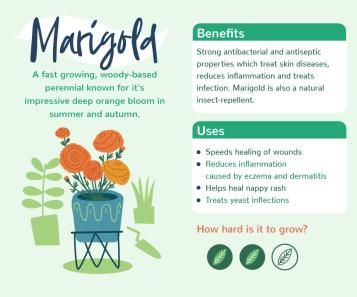
Marigold is fast-growing and known for its impressive orange bloom. This popular garden plant is said to have antiseptic and antibacterial properties to treat skin diseases, improve wound healing, reduce inflammation and treat infection. Marigold is also believed to be a natural insect repellent, so is the perfect addition to your garden.
How to use marigolds?
You can dry out the Marigold flowers and brew them as a tea or apply a cream/ointment topically.
How to care for marigolds?
Marigold is very easy to care for. You can plant them in any area that receives enough sun, and they only need a good watering once a week once they have been established.
For further tips and advice about growing and caring for plants, check out our inspiration hub.
